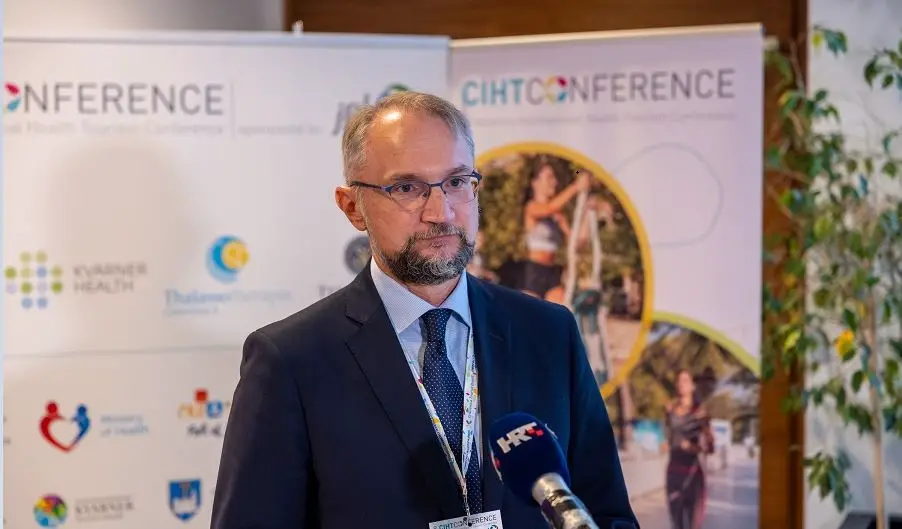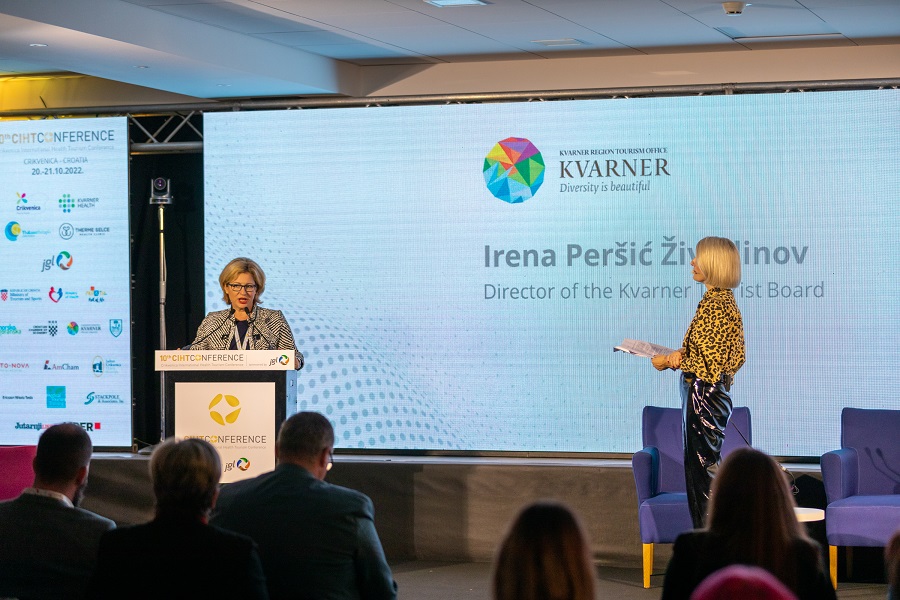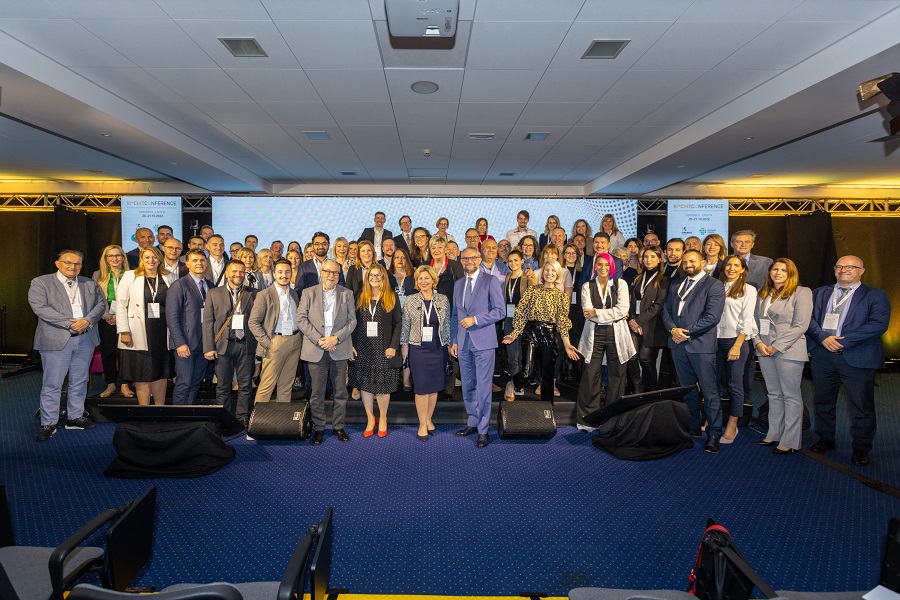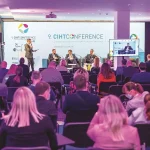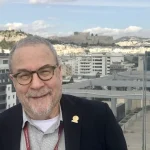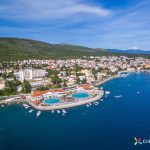The 10th CIHT conference is behind you, congratulations. Give us an overview of this year’s event. What were the highlights for you?
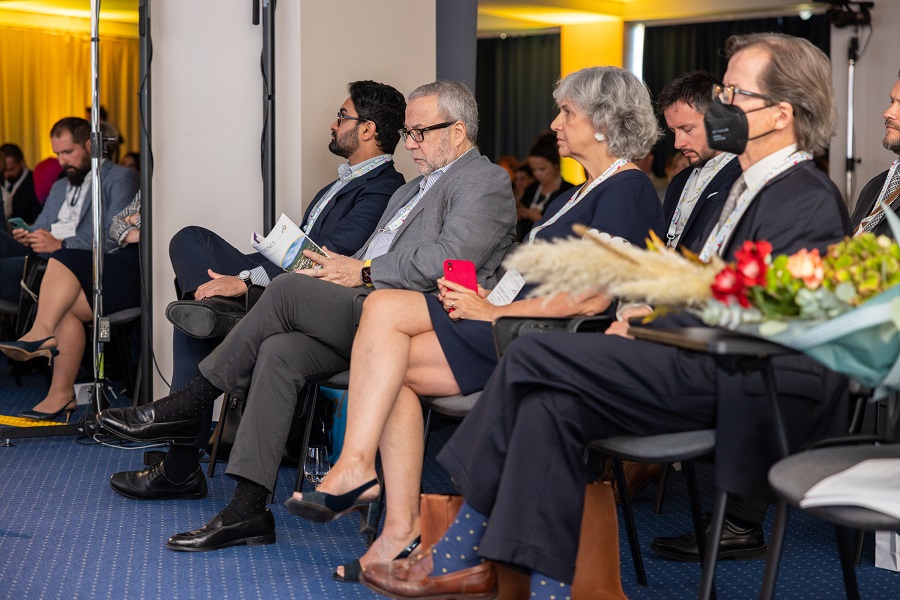
At this year’s jubilee 10th CIHT Conference, over 120 participants were on the location, and over 300 participants attended online. During the Conference, over 20 eminent experts from the USA, UAE, Germany, Poland, and Croatia took part in presentations, workshops and panels. The titles of the panels and workshops speak for themselves:
New, Newer and the Newest in Health Tourism,
Health and Health Industry: Investment and Development,
Medical Tourism and Patient Expectations,
Natural Healing Factors and Health Tourism
Health tourism and sports rehabilitation
Workshop I – Careers in Health Travel
Workshop II – Accessible Tourism
Workshop III – Plan for the promotion of Croatian health tourism on the US market 2023-2025
During the Conference, we also presented 13 awards in recognition of personal/institutional contribution to the development of health tourism in Croatia. The winners were:
1. Special Hospital for Orthopaedic Surgery Akromion
2. University Eye Hospital Svjetlost
3. Glavić Clinic
4. Special Hospital for Medical Rehabilitation Krapinske Toplice
5. Special Hospital for Medical Rehabilitation Stubičke Toplice
6. St. Catherine Specialty Hospital
7. Special Hospital dr. Nemec
8. Rident Dental Clinics
9. Thalassotherapia Opatija
10. Therme Selce
11. Thalassotherapia Crikvenica
12. Ognjen Bagatin
13. Marcel Medak
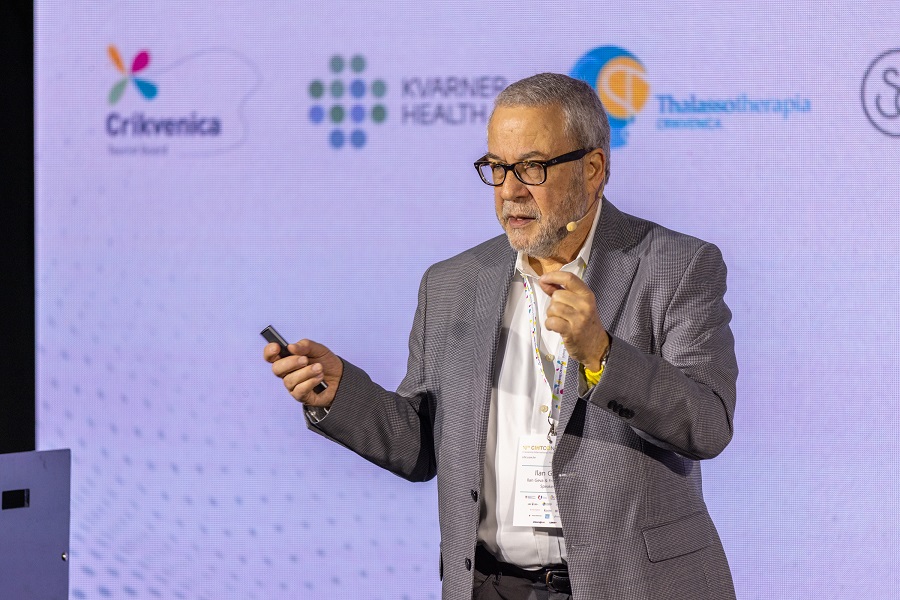
Ten years is quite an achievement, and both CIHT and Kvarner Health Tourism Cluster have made considerable progress since 2013, when you started this conference. Reflect on the last decade. Are you happy with progress so far?
I am certainly satisfied with the direction of the development of the Conference, which over the years has established itself as one of the most significant conferences in the region in the field of health tourism.
CIHT Conference was held for the first time in 2013 on the occasion of marking 125 years of organized health tourism on the Crikvenica Riviera, and in 2015 Kvarner Health Tourism Cluster joined as the organizer, alongside the Crikvenica Tourist Board.
Currently, CIHT Conference is the result of cooperation between the Crikvenica Tourist Board and the Kvarner Health Tourism Cluster as organizers, and the Special Hospital for Medical Rehabilitation Thalassotherapia Crikvenica and the Terme Selce Polyclinic as co-organizers. This year as well, the general sponsor was Jadran-galenski laboratorij d.d., the largest Croatian pharmaceutical company with global success and a member of the Cluster.
Also, for many years, both the Ministry of Tourism and Sports and the Ministry of Health have supported the CIHT Conference, as well as the Primorje-Gorski Kotar County, the Croatian National Tourist Board, the Kvarner Region Tourist Board, the Croatian Chamber of Economy, and the City of Crikvenica.
With the development in the past 10 years, experts from about 20 countries from 4 continents have participated as speakers at the Conference, bringing new knowledge and trends every year both in the organization and content of the service program in health tourism. The importance and possibilities of using new technologies in the provision and promotion of services, as well as the role of accreditation and certification, were also highlighted. A special area is dedicated to presenting knowledge about investment opportunities in health tourism, as well as the scientific segment of the CIHT program.
In addition to the exchange of knowledge, a very important area in the development of the Conference was the creation and maintenance of a “network”, which also enables the continuation of business cooperation. This was also confirmed to us through a large number of active projects between the participants.
Of course, a non-negligible part of the Conference is getting to know the tourist / cultural / gastronomic / oenological qualities of our region.
Where was Croatian health tourism back then, and where is it today?
Given that in the past period, legislative changes were made at the national level and health tourism was included in national and regional strategic plans, the gradual development is obvious. Health tourism has been designated as one of the guidelines for the development of tourism, and at the same time it has become an integral organizational part within the field of health. Also, investments in personnel, space and equipment, as well as marketing and sales, have made it possible to talk about health tourism as one of the most significant economic branches in active development. At the same time, with the financing models offered through various EU programs, the necessary preconditions for further development are made possible.
The pandemic obviously severely disrupted the industry. How would you assess things now, and what permanent changes resulted from that disruption?
Certainly, the pandemic has slowed down the planned development, hitting some sectors more than others. At the same time, adaptation to the new situation led to new ideas, adaptation of the type of services to the new situation and greater use of technology in communication with users (digitalization, mobile applications, telemedicine). The way institutions and services are advertised has also partially changed. Auto destinations and shorter air destinations without major transfers are a more acceptable choice at the moment. As expected, the pandemic contributed to additional investments in the health industry, through research and products in the preventive, diagnostic and therapeutic segment.
What the members of our Cluster offer is a large number of POST-COVID rehabilitation programs, which are offered to both the domestic and foreign markets. At the same time, the offer is adjusted and developed in accordance with the trends in preventive and personalized medicine, physical and mental rehabilitation, the so-called “lifestyle” medicine, i.e. medicine of the style of life, and active and healthy aging programs. Although our focus is primarily on the surrounding countries (76 million people live within a 500 km or 5-hour drive, of which 15 million are over 60 years old), we also direct our advertising towards Scandinavia, Great Britain, but also the US, the UAE, India, and integration of various service models depending on the market. Research shows that for now about 50 million EU residents use health services outside their home country (about 10%), while about 250 million (53%) of those who wish to do so would, and this is an indication that there is no shortage of markets.
You have done a fantastic job branding Kvarner as a health tourism destination, and the Kvarner brand is bigger than Croatia within the industry. What is Kvarner doing differently?
I believe that the main reason is that in the Kvarner Region and in the entire county, and based on a tradition of over 180 years, we realized in a timely manner that mutual association of participants in health tourism (health, health industry, tourism, science and education) can bring greater visibility and better organization to everyone, a more economical approach and long-term investment. At the same time, each of the members additionally develops and uses its comparative advantages. For many years, most institutions have been continuously investing significant funds in staff, equipment and premises, as well as in the promotion of their own services on markets. Top quality service at an optimal price, and excellent transport connections by land and air are the main reasons for competitiveness. We provide an offer that includes the organization of the arrival, accommodation, health services, but also local cultural, gastronomic and “outdoor” activities. It is important to note that the health industry, of which health tourism is a significant part, is positioned as one of the strategic economic branches of development in our region. It also contributes to the quality of life of citizens, and creates products that can be offered to the market.
The Kvarner health tourism cluster (www.kvarnerhealth.hr) is an independent association (NGO) founded in November of 2014. It brings together members from the health sector (medical and dental), the health industry (pharmaceutical company), the tourism sector (tourist associations, agencies, hotel groups) and the scientific and teaching field (faculties of the University of Rijeka). Currently, the Cluster has 37 members, with over 9,500 employees, of which almost 5,500 are health personnel. The members are from both the private and the public sector.
Of course, we have high-quality cooperation with partners from all over Croatia, as well as state, regional and local institutions. We are also aware that additional connection is needed at the national level and we wish for this to happen as soon as possible, as this will achieve additional competitiveness and quality, both on the European and global markets.
Your priorities over the next 2-3 years to develop health tourism in Kvarner and Croatia?
The first step that we need to achieve at the national level is to turn from talking about potentials in health tourism to the realization of these common potentials. Legislation has been created that enables this, strategies have been written, and sources of financing are visible. If we jointly accept the health industry as a strategic economic branch, if we connect stakeholders in health care, the health industry, tourism, science, education and research, we can expect successful results. Destination certification projects, destination management, accreditation of service providers, the use of public-private partnerships, joint application to EU projects, and the use of comparative advantages and opportunities of individual sub-regions of Croatia will enable us to achieve the desired results.
For those perhaps not so familiar with the Kvarner region as a health tourism destination, paint a picture for us. What range of services and excellence are on offer, and what other facilities can people enjoy?
We often use the saying that “A week of stay in the Kvarner Region means health for the whole year”. The name Kvarner comes from the Latin word “Quaternarus”, which means a region that has mountains and a hilly region (Gorski kotar) in the north, the Istrian peninsula in the west, a long sea coast in the east, and islands in the south. This geographical area creates a uniquely healthy microclimate, and in addition to the natural healing factors we have, they were recognized as early as the first half of the 19th century, when the first spas in Kvarner began to open.
We still use this “positional rent”, in addition to high-quality health and tourism staff, investment in equipment and space, as well as research and education, as well as high-quality land and air traffic connections. This is complemented by a high-quality and healthy gastronomic offer of local foods, in accordance with modern nutritional guidelines, activities in nature, at the sea, along the coast and in the hilly part of the region. The offer also includes wellness programs, as well as modern and traditional cultural facilities. Come and get to know Kvarner.
You can learn more about the Kvarner Health Tourism Cluster on the official website.
Read more about CIHT – CIHT 2022: Croatia’s Premier Health Tourism Conference Turns 10 in Style.

